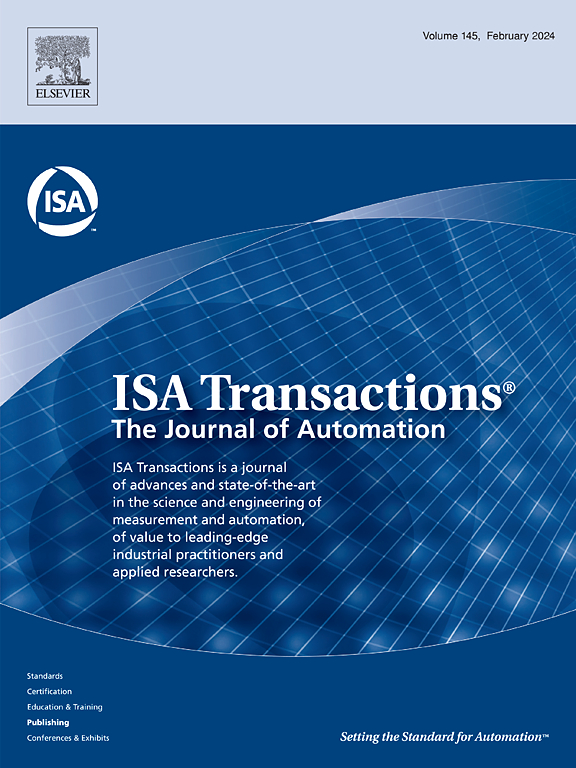网络攻击下模糊奇异系统的有限时间事件触发滑模控制。
IF 6.5
2区 计算机科学
Q1 AUTOMATION & CONTROL SYSTEMS
引用次数: 0
摘要
针对一类易受欺骗攻击的Takagi-Sugeno (TS)模糊奇异系统,研究了一种新的安全控制方案。在这些攻击中,攻击者可以随机地在输出和控制信号中引入错误数据。提出的策略使用基于观测器的滑模控制(SMC)方法来解决攻击和干扰的影响。实现了事件触发协议,有效地管理网络资源。利用随机Lyapunov理论和有限时间分析方法,建立了闭环系统在到达运动阶段和滑动运动阶段均具有有限时间有界性的充分条件。为了减轻攻击的影响,提高系统性能,研究了基于线性矩阵不等式(LMI)的秘书鸟优化算法(SBOA),作为设计控制器和观测器最优增益的新方法。最后,进行了基于圆盘在表面上滚动的仿真研究,以展示所提出的控制方案的有效性和弹性。本文章由计算机程序翻译,如有差异,请以英文原文为准。
Finite-time event-triggered sliding mode control for fuzzy singular systems under cyber-attacks
This paper investigates a novel secure control scheme for a particular class of Takagi–Sugeno (TS) fuzzy singular systems susceptible to deception attacks. During these attacks, adversaries can randomly introduce erroneous data into the output and control signals. The proposed strategy addresses the impact of attacks and disturbances using an observer-based sliding mode control (SMC) approach. Moreover, an event-triggering protocol is implemented to manage network resources efficiently. Furthermore, by employing the stochastic Lyapunov theory and the finite-time analysis method, sufficient conditions are established to ensure the finite-time boundedness of the resulting closed-loop system throughout both the reaching and sliding motion phases. To mitigate the attack’s effects and improve the system’s performance, the Secretary Bird Optimization Algorithm (SBOA) with the linear matrix inequality (LMI) is explored as a new approach for designing the optimal gains of controllers and observers. Finally, a simulation study based on a disc rolling on a surface is performed to showcase the efficacy and resilience of the proposed control scheme.
求助全文
通过发布文献求助,成功后即可免费获取论文全文。
去求助
来源期刊

ISA transactions
工程技术-工程:综合
CiteScore
11.70
自引率
12.30%
发文量
824
审稿时长
4.4 months
期刊介绍:
ISA Transactions serves as a platform for showcasing advancements in measurement and automation, catering to both industrial practitioners and applied researchers. It covers a wide array of topics within measurement, including sensors, signal processing, data analysis, and fault detection, supported by techniques such as artificial intelligence and communication systems. Automation topics encompass control strategies, modelling, system reliability, and maintenance, alongside optimization and human-machine interaction. The journal targets research and development professionals in control systems, process instrumentation, and automation from academia and industry.
 求助内容:
求助内容: 应助结果提醒方式:
应助结果提醒方式:


